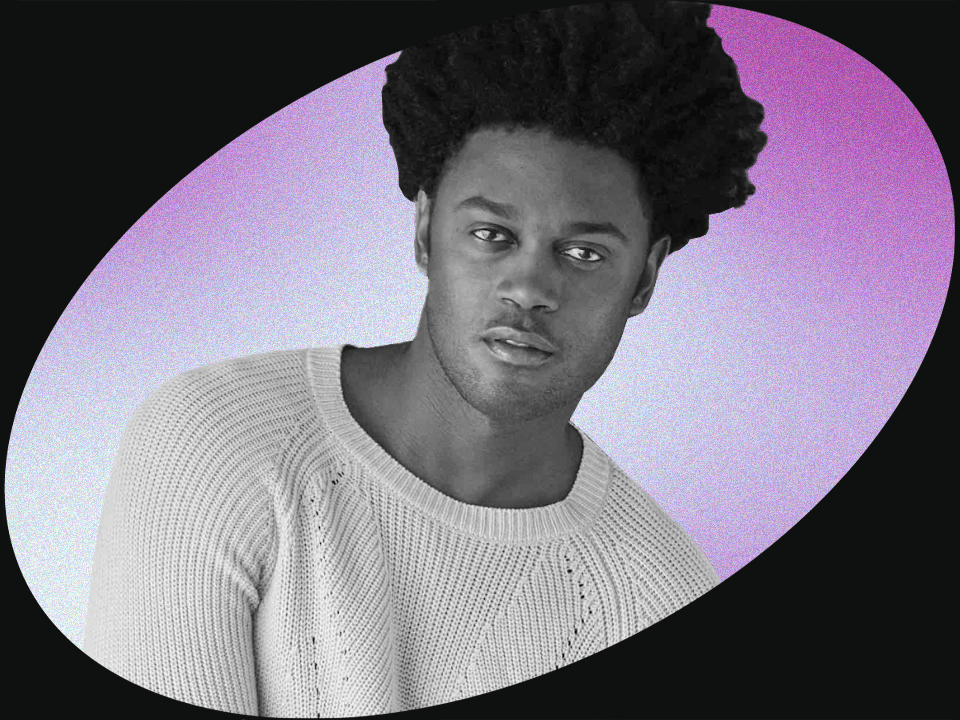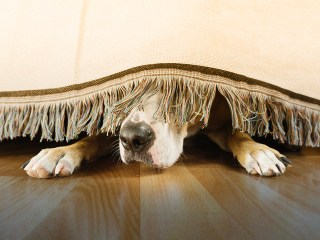How Echo Kellum Learned to Love Himself
The ‘Grand Crew’ actor gives us a glimpse inside his mind.
On NBC’s Grand Crew sitcom, Echo Kellum plays Noah, a hopeless romantic who is never not daydreaming about his perfect happily ever after and is a little hesitant about trying therapy despite his friends’ encouragement. But in real life, the actor and musician is well on his way with this whole mental health, self-love thing.
“Mental health is paramount to being a fully fledged, well-adjusted human being,” he tells Wondermind. “To think that you can take care of everything life throws at you on your own … I think most people need a little help and a little guidance, and it can really open up a ton of doors and a ton of different perspectives in life.”
It might sound like Kellum has it all figured out, but he’s definitely been on a journey to get to this headspace, and it involved adolescent challenges and a breakup that left him wondering who he is when he’s not wrapped up in someone else’s life.
Here, Kellum opens up about how his upbringing influences his mental health today, how he started to find his true self, and the importance of ditching mental health stigma.
[Sign up here to never miss these candid conversations delivered straight to your inbox.]
WM: How are you doing lately?
Echo Kellum: I'm doing pretty well. I accept all that life gives, the good and the bad. I realize that you can't have light without dark and that life is a constant flow of waves, different highs and lows. But for the most part, I'm doing pretty well. I love that I get to do what I do. I love my family. I love my friends. I feel very blessed and fortunate, so I always try to take stock of that and look at where I am.
WM: What moments in your mental health journey stand out to you?
EK: About four years ago, I had a breakup that made me take stock of where I was mentally and where I wanted to be for myself. I was very a codependent person, and I tended to live through my partners a lot of times. When this breakup happened, I started asking myself the question: What makes me happy? Not someone else happy, just what makes me happy in my own bare state with no distractions or any input from anyone else.
I started really delving into hobbies that I didn't really know I loved. [When] I started experimenting, trying different things like backpacking, camping, and photography, it really did open up a space for me mentally. That, on top of the fact that I was definitely seeing a therapist and unpacking the week-to-week aspect of my hurt and trying to get over this relationship.
That was really a big point in my life where mentally I started to finally lean into my own self and do things that made me happy and try to live honestly through that perspective of taking care of my self-love and self. [That] really helped me get to a place where I am today and has me being a more complete version of myself.
WM: What’s one of the best ways you’ve found to open up and have honest conversations with the people in your life?
EK: The juxtaposition of having a serious in-depth conversation when you're killing people on Call of Duty or just farming on Red Dead [on Xbox Live with my friends], it's very interesting. But honestly, I feel like we get into some of the most complex conversations a lot of times because we're just really being ourselves and really pushing each other to be better. It's almost like being on a playground again for adults because we'd still get into these conversations when we were playing football on the playground. So it's like we still play games or NBA 2K or whatever, but then we'll be talking about the situation with Xi Jinping and Vladamir Putin.
And a lot of my friends on Xbox Live I've known since I was 9 years old, so there are a lot of ways that we still connect and converse, but I feel like it's always helpful because they give it to me very real—they don't gas me up. We have very candid conversations, so it's always nice to hear different perspectives from them.
WM: You've spoken a little bit about growing up in an impoverished community. Do you think that continues to impact your mental health today?
EK: It's certainly impacted my work ethic in a sense of sometimes finances can be very triggering for me because of coming up in a very poor community and not having food at certain times. So I've definitely had to sacrifice. I've had to sacrifice to make sure that I was able to provide differently for my children and for my family and able to help out more ways and not have us start off from zero at every generation. Those kinds of things are in my brain constantly.
But I'm certainly not a person who covets fancy things. I mean, I like nice things, but I'm not a person who covets them. I was staying in a studio apartment with my best friend for five years—even when I was on two series. I didn't get serious money and then think, Oh, got to get a nice car. I think what's cool about [what I’ve been through] is I don't need much to be happy because of where I come from. I'm very appreciative of even having a little, but I definitely strive to get to a better place for my family in a lot of ways.
WM: What was the process of finding a therapist like for you?
EK: If I can speak very candidly about mental health in this country, it feels very difficult in a lot of ways. I've had to find therapists for different people in my family and for myself, and it is sometimes an arduous process because not everyone takes your insurance or these people need a specific thing or approvals or this and that. Aid is way too hard to find [for] mental health in this country—way too difficult.
But I've been thankful to find people who I do gel with. One of my therapists for a long time was a person I had as a relationship therapist years and years ago, but I just really loved her perspective. I loved that she knew me and definitely would call all the strikes and balls and knew when I was on my tip. She was always really nice at keeping me honest, essentially. But she had a nice bedside manner. Even if I messed up, it was just like, I'm human. It wasn't like, “Darn you!” I know some therapists can be pretty harsh, but I was very thankful to have someone that I trusted from a past relationship. She's been my therapist for a few years now, and I'm very thankful to have her.
WM: What's one of the most surprising things you've learned in therapy?
EK: From a person who had never done it growing up, it was very helpful to unpack and talk about things or just to be heard a lot of times. Sometimes I just want to share whatever's on my chest or weighing me down.
I've learned a lot about myself, especially in terms of how I treat myself, the work I needed to do to really empower myself and lean into my self-love, the work I needed to do to really allow certain energies in my life, and to lean into different books or teachings of different people, whether it's Brené Brown or whatever.
To also be able to name some of the things that I didn't know had names and actual aspects in therapy that you can work through, whether it was catastrophizing or codependency or any of these things, just being able to actually define them has been really helpful as well.
For me, therapy's always been a journey of self-love. I think growing up in an impoverished community and going through some of the things I went through in high school, I grew up never feeling good enough. I always had a lot of self-doubt or self-love issues growing up, and that's been one of the things therapy's really helped me get a grip on or see myself in a different light or see the person in the mirror and love what I see as opposed to being like, Oh my God, is he good enough?
WM: What do you love about yourself today?
EK: My sense of humor, my adventurous spirit, my kindness—and not looking at that as a weakness. I mean, just loving my artistry, loving things that I might see as imperfections, being OK with the human experience, getting past certain things of loss or death or hardships in life. I don't know how I would be where I am today if it were not for different therapists and people helping me in really dark times and not-so-dark times too.
WM: Are there any stigmas or misconceptions about mental health that you hope to dismantle?
EK: I feel like in the past, people look at going to a therapist like, What's wrong with you? Ooh, something in your head off? You’re crazy, or things like that as opposed to just looking at it as a tool to help us navigate life and to navigate how we view it and think of ourselves. What's important to me is helping people see the benefits of it, to see that it is something that adds to your life as opposed to making you seem broken or like you need work. We all need work; we all need help; we all need guidance.
It’s definitely been stigmatized, especially amongst men of color, to feel like you're weak if you're doing these things. But therapy is a form of strength. Saying you need help or saying you don't have all the answers, that's a form of strength. It's a form of being honest, and that's the only way you can fix something. It's the only way you can change course on something.
WM: What's the best mental health advice you've ever received?
EK: I've had a tendency to catastrophize moments in my life or want to speed it up, but the perspective of this too shall pass, take it day by day, breathe in the moment, that's been a really helpful thing to me. It's helped me slow down, take stock of where I am, and have context to know that whatever I'm going through, it could always be worse.
Funny enough, there's a saying that's hit the zeitgeist now, but this saying is so brilliant to me. It really is so smart in a way. But the saying, “It be like that sometimes,” just to be like, “Life is life, man.” We just gotta keep pushing through.
This interview has been edited and condensed for length and clarity.
Wondermind does not provide medical advice, diagnosis, or treatment. Any information published on this website or by this brand is not intended as a replacement for medical advice. Always consult a qualified health or mental health professional with any questions or concerns about your mental health.




